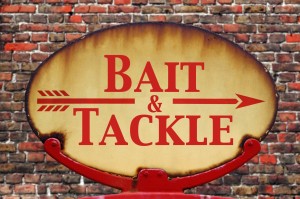We’re all familiar with it. It’s become a part of everyday life. It is likely, in fact, that this is not the first article you have read today with an enticing but obfuscated title. We’re talking, of course, about clickbait. What began as a harmless way to kill the occasional five minutes in between meetings has mutated into an all-consuming online monster with no sign of relenting.
“Every media channel and the content delivered through it is littered with painfully high levels of crap,” says online marketing consultant Barry Feldman. “For the consumers of the media, it’s a nuisance we must (and have learned to) live with…The real owners of the problem are the brands publishing the junk. They fail to make deposits in the trust bank, so their credibility takes a beating.”
But what is it about clickbait that is so compelling, exactly? Here are the 3 mind-blowing facts that you absolutely need to know and may shock you:
Curiosity gets clicks
 Psychologist George Loewenstein describes curiosity as “a form of cognitively induced deprivation that arises from the perception of a gap in knowledge or understanding.” Any tantalising headline which tickles this knowledge gap can prove difficult to resist to our intrinsically inquisitive natures.
Psychologist George Loewenstein describes curiosity as “a form of cognitively induced deprivation that arises from the perception of a gap in knowledge or understanding.” Any tantalising headline which tickles this knowledge gap can prove difficult to resist to our intrinsically inquisitive natures.
This accounts for the phenomenon of the coy, teasing clickbait headline made popular by sites like Upworthy. Telling somebody they won’t believe what happens next immediately triggers that urge to fill in the gaps and remedy our own ignorance.
Clickbait addiction is a real thing
 Countless imitators have tried to replicate Upworthy’s success, some through titillation and outrage, others through fabricated, sensationalist headlines which merely result in frustration on the part of the reader. This can provoke the same kind of cyclical behaviour as any other kind of addiction. “Curiosity and novelty are large factors,” says Nicky Yates, Director of Communications at BuzzRadar. “We click, then when the clicking doesn’t satisfy, we click another one. It becomes a cycle.”
Countless imitators have tried to replicate Upworthy’s success, some through titillation and outrage, others through fabricated, sensationalist headlines which merely result in frustration on the part of the reader. This can provoke the same kind of cyclical behaviour as any other kind of addiction. “Curiosity and novelty are large factors,” says Nicky Yates, Director of Communications at BuzzRadar. “We click, then when the clicking doesn’t satisfy, we click another one. It becomes a cycle.”
BuzzFeed is the current king of content quite possibly because it actually bucks the trend, by managing readers’ expectations before they’ve even clicked through to the site. It is very rare that you will read a BuzzFeed article and not get exactly what the headline described, whether it’s the 10 most important photos of shirtless rugby players you will see today, or the best Twitter reactions to a celebrity scandal. But even these what-you-see-is-what-you-get experiences can drive feelings of un-fulfilment when consumed in large volumes.
Sharing is caring (mostly)
While consumers are sick and tired of being sold impossibly high expectations in headlines, clickbait wasn’t conceived cynically. Upworthy might be guilty of originating the now-overused ‘You Won’t Believe What Happened Next’ cliché, but the fact remains that founder Eli Pariser built an entire business around the innately human impulse to share positivity. The Upworthy platform was restricted to content that was inspiring, uplifting or otherwise imparted a feeling of warmth.
There are a number of contributing factors to Upworthy’s popularity. Some might feel a moral imperative to share wisdom, while for others it is a simpler, more emotional impulse; “this has made me feel good, and so I want to pass that pleasure along to others.” It also feeds our ego to know that we have made somebody else smile, hence the success of such positivity-centric videos. And finally, it could be argued that sharing this kind of content provides a sensation of release; people don’t like sitting alone stewing in strong emotions. Joy, like misery, loves company.
But the clickbait tide is turning. As Feldman says, more and more brands are getting wise to the fact that people don’t trust websites which simply churn out junk food content. At Social Media Week London 2015, there was a pervading sense that even people within the advertising and media industries are over clickbait. “There’s so much stuff out there, we don’t have the mental bandwidth to deal with it,” says Unruly CEO Sarah Wood, while Dazed’s Chief Commercial Director Will Haywardbelieves that a broader social shift is overdue: “It’s not just the nomenclature [of clickbait] I object to, it’s the culture it engenders,” he says. “The era of content being the buzzword is coming to an end.”
So what’s the solution? Writers, filmmakers, publishers, brands and advertisers all need to ditch the cheap tactics to restore their credibility, and get back to creating things that people genuinely want to read or watch. Then, just maybe, we won’t believe what happens next.
